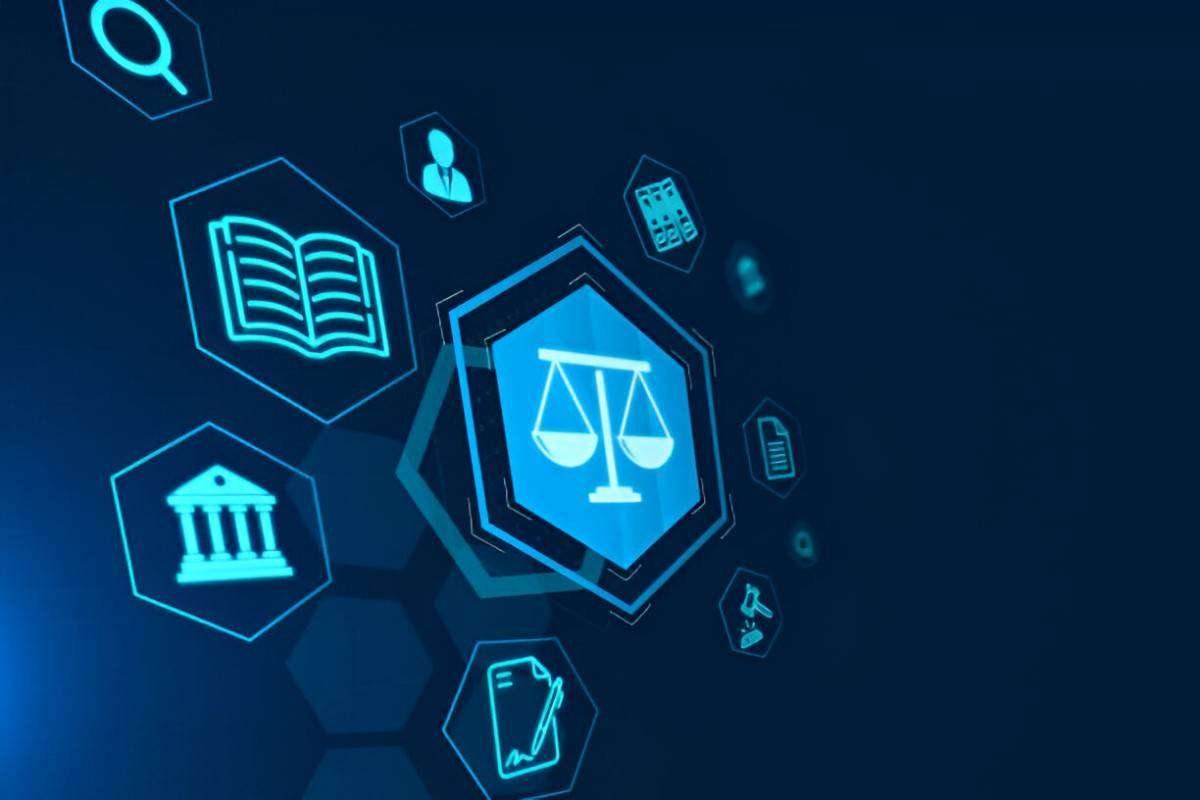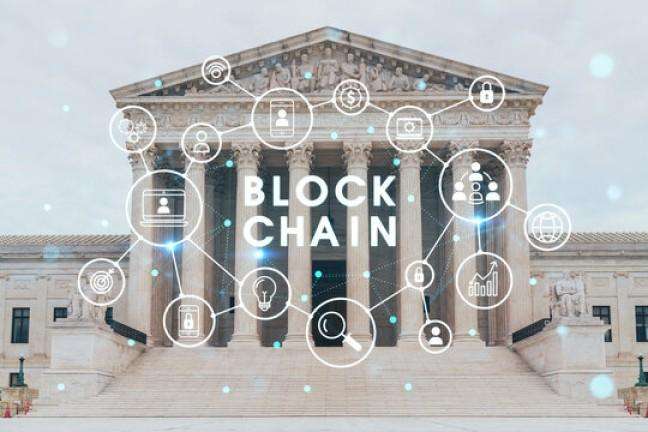In the rapidly changing world of technology, blockchain has emerged as one of the most significant developments. As a decentralized, distributed ledger, blockchain has the potential to revolutionize various industries, including finance, supply chain, and healthcare. However, the legal implications of blockchain technology are still being understood and navigated. This is where the role of abogados blockchain, or blockchain lawyers, becomes critical. In this article, I will dive into the responsibilities and challenges faced by blockchain lawyers, compare their roles to traditional legal professionals, and examine the legal intricacies of blockchain through real-world examples.
Table of Contents
Understanding Blockchain and Its Legal Implications
Blockchain technology, at its core, is a system that allows information to be securely stored and shared across multiple computers in a decentralized manner. This eliminates the need for a central authority, making it an appealing solution for industries that require transparency, security, and efficiency. However, despite its numerous advantages, blockchain also presents unique legal challenges.
Blockchain lawyers, or abogados blockchain, are legal professionals who specialize in the legal aspects of blockchain technology. Their role is crucial in navigating the complexities of smart contracts, cryptocurrency regulations, intellectual property rights, data privacy, and more. As the technology evolves, so too does the need for legal expertise to ensure compliance with existing laws and to shape the legal landscape for emerging blockchain applications.
The Role of Abogados Blockchain
- Smart Contract Analysis and Drafting: One of the most common applications of blockchain technology is the use of smart contracts—self-executing contracts where the terms are directly written into code. These contracts automatically execute when predefined conditions are met. Blockchain lawyers help draft, review, and enforce these contracts, ensuring they comply with legal requirements and mitigate potential risks.For instance, imagine two companies entering a smart contract to exchange goods. The contract might specify that payment will only be made when the goods are delivered. Blockchain lawyers ensure that the terms are clearly defined and legally enforceable, even in the digital world.
- Cryptocurrency Regulations: The rise of cryptocurrencies like Bitcoin, Ethereum, and many others has created a need for lawyers who can navigate the complex regulatory environment surrounding digital currencies. Abogados blockchain work to ensure that their clients comply with anti-money laundering (AML) laws, know-your-customer (KYC) regulations, and other financial regulations that apply to cryptocurrency exchanges, wallets, and transactions.
- Intellectual Property Rights: Blockchain technology presents unique challenges when it comes to intellectual property (IP) rights. Since blockchain allows for decentralized ownership and distribution of digital assets, abogados blockchain are often called upon to address issues related to the ownership, licensing, and protection of these assets.
- Data Privacy and Security: With blockchain’s promise of secure and transparent transactions, it also raises concerns about data privacy. Blockchain lawyers ensure that blockchain projects comply with data protection regulations like the General Data Protection Regulation (GDPR) in the European Union. For example, if a blockchain project involves the collection and storage of personal data, lawyers must ensure that the project follows the principles of consent, data minimization, and the right to be forgotten.
- Dispute Resolution: Given the global nature of blockchain transactions, disputes may arise that involve parties from different jurisdictions. Blockchain lawyers are skilled in navigating these cross-border legal issues, often using arbitration or mediation to resolve disputes without the need for lengthy court proceedings.
Comparing Abogados Blockchain with Traditional Lawyers
At first glance, the role of blockchain lawyers might seem similar to that of traditional legal professionals. However, there are key differences that set them apart. Let’s break down a comparison between abogados blockchain and traditional lawyers using a table for clarity:
| Aspect | Abogados Blockchain | Traditional Lawyers |
|---|---|---|
| Focus Area | Blockchain technology, cryptocurrencies, smart contracts, and data privacy | General law (corporate, family, criminal, etc.) |
| Legal Expertise | Specialized in emerging technology and digital regulations | Broad expertise in traditional law fields |
| Client Base | Tech startups, cryptocurrency companies, blockchain developers, financial institutions | Individuals, corporations, government entities |
| Regulatory Knowledge | Expertise in digital currency laws, AML/KYC, and blockchain regulations | Expertise in general regulatory frameworks (tax, corporate law) |
| Dispute Resolution | Focuses on decentralized dispute resolution methods like smart contract enforcement | Primarily focused on litigation, court procedures, and settlement |
As you can see, the role of an abogado blockchain is highly specialized compared to a traditional lawyer. They must stay updated on new technologies and legal developments in the blockchain space, which requires continuous learning and adaptation.
The Challenges Faced by Abogados Blockchain
- Uncertainty in Regulations: One of the biggest challenges faced by blockchain lawyers is the uncertainty surrounding blockchain regulations. In many jurisdictions, blockchain and cryptocurrency laws are still in development, and regulations can vary significantly from one country to another. This makes it difficult for blockchain lawyers to provide clear, consistent advice.
- Complexity of Technology: Blockchain is a highly technical field, and lawyers must have a deep understanding of the underlying technology in order to advise their clients effectively. This often means that abogados blockchain need to work closely with engineers and developers to understand the technical aspects of blockchain projects.
- Global Nature of Blockchain: Blockchain transactions are not confined to any single country or jurisdiction, making it challenging for lawyers to navigate the various legal systems involved. Blockchain lawyers must have a solid understanding of international law and cross-border issues in order to represent their clients effectively.
- Legal Precedents: Since blockchain is a relatively new field, there is a lack of established legal precedents. This makes it difficult for abogados blockchain to predict how courts will rule in certain cases, especially in areas like intellectual property, contract enforcement, and dispute resolution.
- Interoperability and Integration: Many blockchain applications are still in the experimental phase, and integrating blockchain technology with existing legal systems can be challenging. Lawyers must not only understand blockchain but also how it interacts with traditional legal frameworks.
Real-World Examples and Case Studies
To better understand the role of blockchain lawyers, let’s look at a few real-world examples where abogados blockchain play a crucial role.
Case Study 1: Smart Contract in Real Estate Transactions
Imagine a scenario where two parties want to purchase a piece of property using blockchain technology. Instead of relying on traditional methods of contract signing, a smart contract is created. The terms of the contract are coded into the blockchain, and the contract automatically executes when certain conditions are met, such as the transfer of funds and the legal transfer of property rights.
In this case, an abogado blockchain would be responsible for drafting the smart contract, ensuring it complies with local property laws, and advising both parties on the legal implications of using blockchain for real estate transactions. They would also work with developers to ensure the contract is executed correctly.
Case Study 2: Cryptocurrency Exchange Compliance
A cryptocurrency exchange operates in multiple countries and must comply with local regulations regarding anti-money laundering (AML) and know-your-customer (KYC) rules. Blockchain lawyers would work with the exchange to ensure they meet these regulatory requirements, helping them set up the necessary systems for verifying customer identities and monitoring transactions.
In this scenario, abogados blockchain must not only be familiar with cryptocurrency laws but also with the financial regulations in each jurisdiction where the exchange operates. They would help the exchange navigate the complex web of regulations and avoid legal issues.
Future Outlook for Abogados Blockchain
The role of blockchain lawyers is expected to grow as the adoption of blockchain technology increases. As more industries look to incorporate blockchain into their operations, the demand for legal expertise in this field will only rise. Lawyers specializing in blockchain will need to stay ahead of the curve by continuously updating their knowledge of emerging technologies and evolving regulations.
Additionally, as blockchain technology becomes more mainstream, I believe we will see greater efforts to standardize legal frameworks around blockchain. This could lead to more clarity for abogados blockchain and their clients, making it easier to navigate the legal complexities of the technology.
Conclusion
Blockchain technology is revolutionizing industries across the globe, but with this innovation comes a host of legal challenges. Abogados blockchain play a crucial role in helping businesses and individuals navigate these challenges. From smart contract drafting to cryptocurrency regulation and dispute resolution, their expertise is vital in ensuring that blockchain projects comply with the law.
In this rapidly evolving landscape, blockchain lawyers must continuously adapt to new technologies and regulations. As the legal frameworks around blockchain continue to develop, the role of abogados blockchain will become even more important in shaping the future of digital transactions and decentralized systems.





